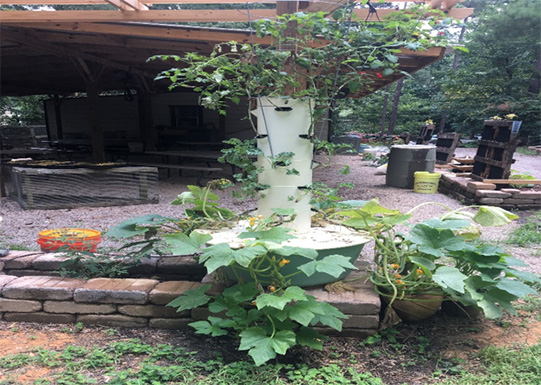Environmental Engineering
Environmental engineering is traditionally defined as the sub-discipline of Civil Engineering concerned with the control/management of air, water, and land resources. These engineers are primarily tasked with the application of science and design principles to minimize adverse effects of human (anthropogenic) activity on the natural environment. Practitioners of this important subdiscipline strive to help shape our modern cities into human habitats that are safe, clean, and sustainable. Environmental engineers further address the growing stressors of energy security, population growth, food supply, waste disposal, climate change, and future infrastructure demands.
The UAB Department of Civil, Construction, and Environmental Engineering is committed to the delivery of engineering fundamentals and experiential learning to ensure our students are immediately productive in their chosen profession and able to create and apply their knowledge for the benefit of our collective society.
2018 Hydro Think Tank Activity
CCEE undergraduates Wilbert Wilson and Corbin Fige recently competed in the inaugural Hydro Think Tank Competition.
Initially the two students formed a UAB team that would compete against teams from other institutions, but the teams were reselected, and Fige and Wilson ended up competing against one another, with Wilson’s team ultimately winning the competition and Fige’s team finishing second.
The teams were asked to solve a complex dissolved oxygen problem at the hydropower dam at Lake Logan Martin during a five-day competition. The students stayed in a hotel in nearby Pell City.
The winning team was awarded $500.
“Although we encountered different opinions at time, sleepless nights, and dead ends, our group prevailed and developed an efficient and practical solution to the dissolved oxygen problem,” Wilson said. “This was a great opportunity to network with students and engineering professionals.”
Vertical Gardening
-
Figure 1. Vertical gardening systems being studied: tower gardens, pallet gardens, and pyramid gardens.
-
Figure 2. System layout of vertical gardening systems being studied at Aldridge Gardens.
-
Figure 3. Tower garden growing kale, summer squash, and tomatoes.
-
Figure 4. Vegetable produce from the tower garden.
The undergraduate and graduate programs’ continued involvement in the Birmingham-Jefferson County community have identified food insecure areas, known as food deserts, and associated health issues negatively impacting the community. Farm stands and community gardens around the Birmingham-metropolitan area have increased in recent years to encourage healthier eating habits. To combat the food-desert conditions, sustainable alternative growing techniques for urban agriculture should be implemented and incorporated into local community gardens. Alternative garden techniques, such as vertical gardens, maximize yield in limited spaces. Research currently underway seeks to analyze various vertical-growth methods (Tower Garden, Pyramid, and Vertical-Pallet), water quality (collected city, lake, and rain), and overall yield. Aldridge Gardens located in Hoover, Alabama, has provided land space and resources for this research.
Biomass, visual and remote sensing analysis, and amount of water required for irrigation and type of water will be assessed to determine which of the three growth systems provides the most vegetables or leaves. The various collected waters used are analyzed for overall effects. The resulting fruits and leaves are dried and weighed for biomass analysis and measured for overall size. The intent is to identify fruit and vegetable yield to analyze success as plants were planted as seedlings. This data will be culminated to determine best growing practices for communities in climate zones like Birmingham, Alabama. The goal of this study is to determine optimal techniques for vertical gardening in urban areas with limited resources such as space, water, and soil.



